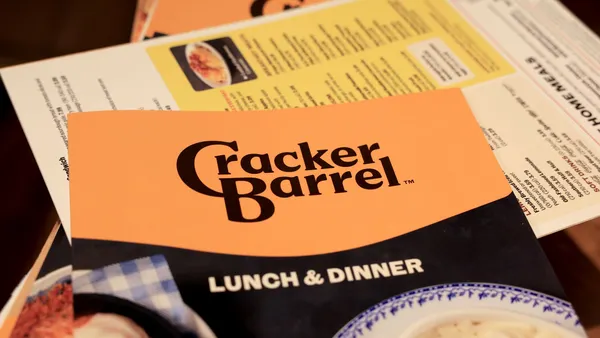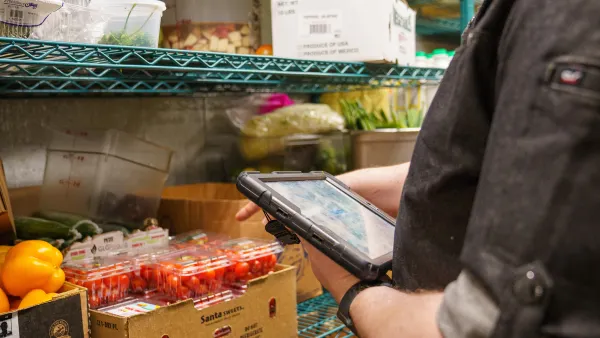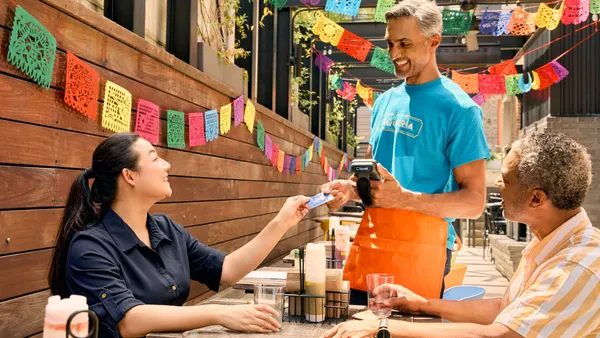Dive Brief:
- Twenty percent of TGI Fridays 386 U.S. restaurants could close permanently due to novel coronavirus-related sales declines, CEO Ray Blanchette told Bloomberg in an interview.
- When the pandemic hit, Fridays sales fell roughly 80% almost immediately, Blanchette told the publication. Pickup and delivery channels have helped revenue bounce back, but it's still down 50%.
- The chain is testing party tents that allow diners to eat in restaurant parking lots and observe social distancing in New Hampshire, with plans to roll out the pilot to Connecticut, to drive sales. "We'll run it for a month and we'll see how it goes, and if we can do that profitably we'll do it," Blanchette said. "We have become very entrepreneurial. No one's got a playbook here."
Dive Insight:
The casual dining segment has been hit hardest by COVID-19 disruption, but the permanent closure of up to 20% of U.S. restaurants is a stunning blow to Fridays. Sales have dropped extensively, with Jim Mazany, TGI Fridays COO, previously stating in April that full sales won't likely recover until Q1 2021.
Before the pandemic, the chain was experimenting with industry-leading technology like machine learning to optimize its use of consumer data and develop personalized marketing strategies and in-store experiences that would edge out competitors. Fridays artificial intelligence applications had a three-year head start on McDonald's purchase of AI-backed drive-thru tech firm Dynamic Yield, for example.
These investments were paying off incrementally — in 2018, technology for general managers grew store-level profitability by 5%, shaved down wait times by 20% and boosted throughput by 10%. This first-mover advantage was making Fridays an increasingly formidable competitor in the casual space and was also helping the company spar with QSRs like Sonic, but dining room closures have significantly undermined its predicted trajectory.
In April, the chain's planned merger with Allegro Merger Corp. — which would have taken Friday's public — was canceled due to "extraordinary market conditions and the failure to meet necessary closing conditions."
This scrapped deal, along with a potential 20% retrenchment of its U.S. system, doesn't bode well for the future of sit-down restaurants. Many other casual giants have suffered similar sales declines, and several are at risk of defaulting within the next year, according to S&P Global Market Intelligence. Bloomin' Brands has a 36.1% chance of defaulting per the firm's research, followed by The Cheesecake Factory at 28.8%, Denny's at 27.6% and Brinker International at 24.8%.
Fridays new outdoor dining strategy could help its recovery as social distancing restrictions ease, but it may not be enough to prevent further closures, especially since almost 50% of consumers report that they would wait at least one to three months before eating in a dining room with another person. Still, this open-air model could help lure customers who are primarily worried about entering enclosed spaces during the pandemic, and respondents to the Washington State University's recent survey said that they would return to casual dining and family-style restaurants first.












